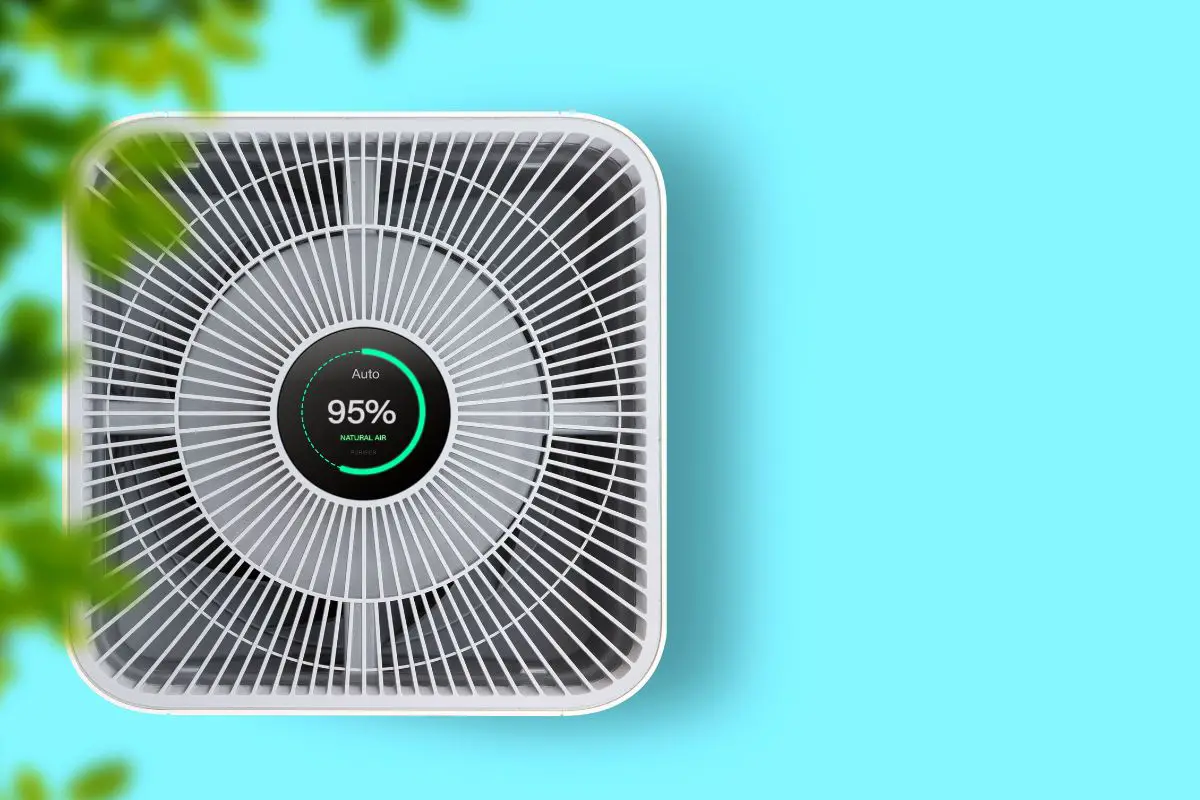How to Select the Best Bedroom Air Purifier: An In-Depth Guide
Often, when we think of pollution, we hardly ever think of our own homes and how indoor air pollution can be so terrible! Sadly, the air inside the house can get yuck and the impact on our health is not great!
Americans spend a lot of time in their bedrooms—at least 11 hours a day. And while all that sleeping and resting might be great for your mind and body, the air you’re breathing in may not be. According to the U.S. Environmental Protection Agency (EPA), indoor air can be five times as polluted as outdoor air.
Are Air Purifiers the Answer?
Well, yes – they can be extremely helpful! Having a bedroom air purifier, which can remove harmful irritants from the air, can be a valuable investment. But with so many options available, choosing the best bedroom air purifier can be an intimidating and overwhelming process. Don’t worry, we’ve got you covered! From the different models available to how they each work and which ones are best for your bedroom, we’ve got everything you need to know about home air purifiers in this helpful guide.
What is an air purifier?
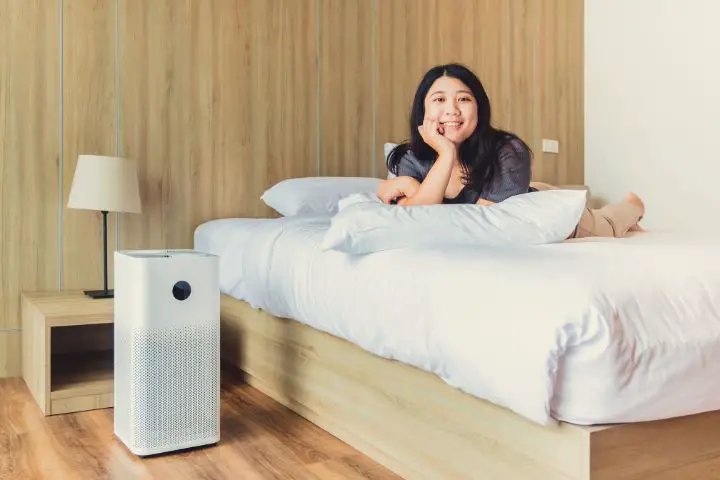
An air purifier is a device that cleans the air in your home by removing pollutants like dust, pollen, mould spores, smoke and pet dander. Air purifiers come in many different shapes and sizes, with different cleaning mechanisms and a variety of added features, but ultimately, they all work to achieve the same goal: To give you cleaner, healthier air to breathe.
Types of air purifiers
There are several types of air purifiers available, but two of the most effective are mechanical filters and electronic air purifiers. Here’s a little information about how each operates:
Mechanical filters are probably the most common type of air purifier. They work by drawing air through a series of filters designed to capture tiny pollutants like dust, pollen and pet dander. The most effective type of mechanical filter is the High-Efficiency Particulate Air (HEPA) filter, which is capable of removing extremely small particles from the air.
Electronic air purifiers are also common and work by using an electrical charge to capture pollutants like dust, pollen and smoke. One popular type of electronic air purifier is the ionizer, which emits negatively-charged molecules which attach to positively charged molecules in the air (like dust and pollen). As the clusters of molecules get heavy, they fall out of the air, where they can be vacuumed up or wiped away.
One thing to note about electronic air purifiers: Some types emit ozone, a dangerous pollutant that can be harmful to your health. Stay away from any purifiers that emit ozone—directly or as a byproduct.
Mechanical and electronic air purifiers are generally best at removing particulate matter from the air. There are also devices called gas-phase air filters, which are designed to remove gases and odors. They use a material like activated carbon to collect gaseous pollutants and odors as air passes through them. Gas-phase filters are often paired with a mechanical or electronic purifier for a system that filters both particles and gases.
Why you may benefit from an air purifier for the bedroom
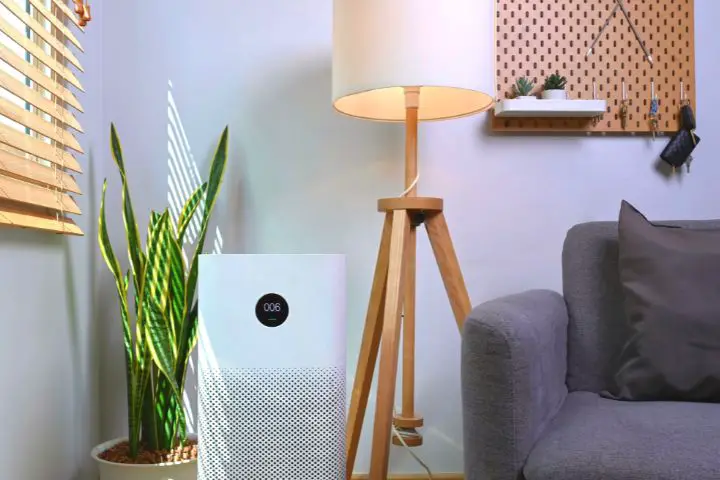
There are many reasons you might need an air purifier for your bedroom. Here are just a few:
Allergies: If you suffer from allergies, an air purifier that contains a HEPA filter may help trap some of the airborne allergens like pollen or pet dander that trigger your symptoms.
Mould: Mould spores are a common indoor pollutant that can exacerbate respiratory conditions like asthma. Since filtration is one of the best ways to remove mould, air purifiers with HEPA filters may be effective in eliminating this contaminant.
Viruses: Airborne viruses can circulate through your home, making you and your family sick. While they can’t remove all viruses, air purifiers can certainly help to remove many from the air.
Dust: Dust is made up of tiny particles that can cause respiratory problems. An air purifier can help to remove dust from the air, giving you cleaner, healthier air to breathe.
Smoke: Smoke from cigarettes, candles and fireplaces can be harmful to your health. An air purifier with a filtration system may help remove smoke from the air. But it’s important to note that they won’t remove the smell of smoke, or smoke stains on walls, ceilings or furniture.
Odor: Air purifiers that utilize a gas-phase filtration system can help remove odors from the air, giving your bedroom a fresh, clean smell.
Sleep: If you’re coughing or blowing your nose all night, your sleep quality and duration will be compromised. An air purifier can help remove allergens and pollutants from the air, giving you a cleaner, healthier environment to sleep in.
Increased life expectancy: Studies have shown that people who breathe cleaner air tend to live longer. An air purifier can help to improve the quality of air in your home, and potentially increase your life expectancy.
Selecting the Best Home Air Purifier for Your Bedroom: Factors to Consider
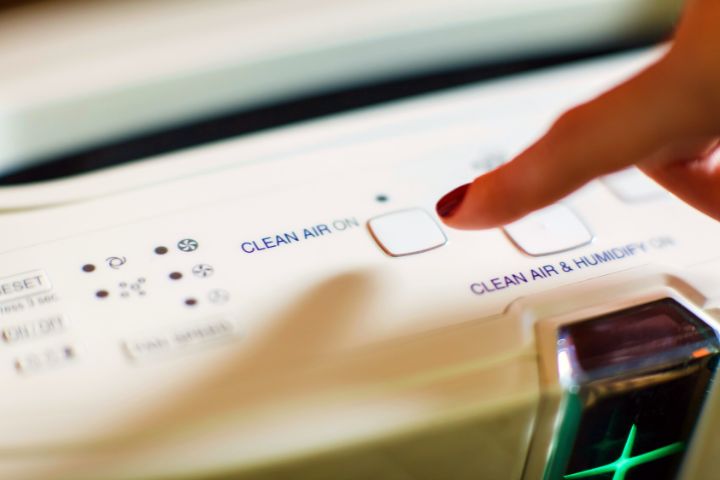
When choosing the best air purifier for your bedroom, there are a few things you should keep in mind, like:
Room size: Air purifiers are designed to clean rooms of specific sizes, and they’re most effective when they’re compatible with your room size. Buying a model meant for a slightly larger room may help you shave a little off your electricity bill since the purifier will be effective even at a lower setting.
Noise: If you’re a light sleeper, you’ll want to make sure you choose a purifier that isn’t disruptive, and that can be effective even in its quietest setting.
Filters: The type of filter the air purifier uses is also important. HEPA filters are the most effective at removing particulate matter from the air, so these types of air purifiers are definitely worth the investment. Look for true HEPA filters, and avoid anything that is labelled “HEPA-like” or “HEPA-type.” If you want your purifier to remove gases and odors in addition to airborne pollutants, select a model that includes both HEPA and activated carbon filters.
Clean Air Delivery Rate (CADR): Based on standards set by the Association of Home Appliance Manufacturers (AHAM), the CADR indicates the speed at which a purifier can filter dust, smoke and pollen particles, three of the most common indoor air pollutants. CADR is measured in cubic feet per minute (CFM). For example, an air purifier with 600 CFM will purify the air in a 600 square feet room much faster than an air purifier with 200 CFM. Since most bedrooms are between 250 to 350 square feet in size, an air purifier with CADR 300 to 400 will likely meet your needs.
Asthma & Allergy Friendly Certification: The Asthma and Allergy Foundation of America in association with Allergy Standards Limited (ASL) has a certification program designed to help consumers make educated shopping decisions. To receive certification, air purifiers are run through a variety of tests to ensure they are as effective as they claim to be at removing harmful particles. Only if it passes all of the tests will a purifier be given the “asthma & allergy friendly®” mark.
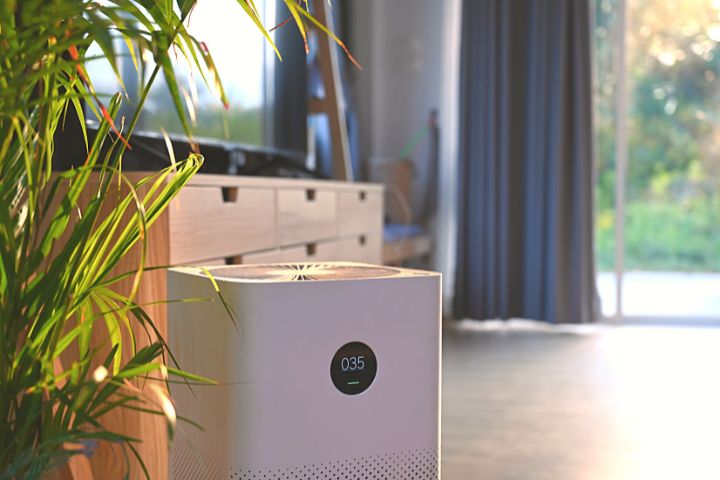
Additional Features: When choosing an air purifier for your bedroom, there are a few features you should look for, including:
- Timer: This will allow you to set the air purifier to run for a certain amount of time, so it will turn off automatically when the time is up.
- Remote control: This will allow you to control the air purifier without having to get up and walk across the room.
- Indicator light: This will let you know when the filter needs to be changed.
- Warranty: This will protect your investment in case something goes wrong with the air purifier.
Selecting the Best Air Purifier for Mould
If you’re concerned about mould, you’ll want to invest in an air purifier with a HEPA filter, which is very effective at trapping mould spores—a true HEPA filter traps 99.97 percent of particles that are .3 microns or larger and mould spores range from 3-100 microns. It will also prevent mould growth—since mould spores can’t live or reproduce without moisture, they die inside the dry, sterile environment of a HEPA filter. Some ultraviolet (UV) air purifiers are effective at removing mould as well.
If you want to eliminate the very distinct and unpleasant mould smell, consider investing in an air purifier that also has a carbon filter, which can remove the odor caused by mould.
Selecting the Best Air Purifier for Allergies
If you have allergies, the best air purifier for your bedroom is one that uses a HEPA filter. HEPA filters are designed to remove very tiny particles like pollen and pet dander from the air, so they will be the most effective at alleviating your symptoms.
Selecting the Best Air Purifier for Viruses
If you’re concerned about viruses, the best air purifier for your bedroom is one that includes a HEPA filter, which can capture many harmful viruses and bacteria present in the air.
Selecting the Best Air Purifier for Dust
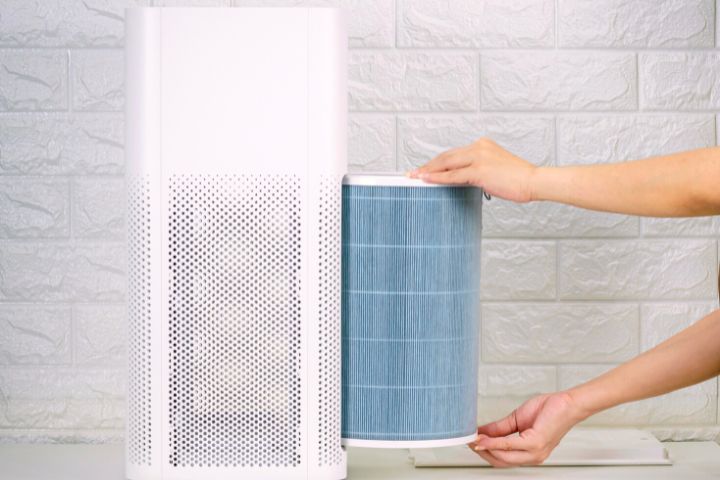
Once again, air purifiers that include a HEPA filter are your best bet here. They tend to be the best at filtering out tiny particulate matter like dust.
Selecting the Best Air Purifier for Smoke
If you’re concerned about smoke, the best air purifier for your bedroom is one that has both a HEPA filter and an activated carbon filter. Together, these two filter types should significantly reduce the concentration of smoke in the air.
Best Home Air Purifier for the Bedroom
Here are some of the best overall air purifiers for the bedroom:
– The Bluair Blue Pure 211+ Air Purifier has a three-part filtration system, including an extremely effective HEPA filter. It has a large coverage area—it’s designed to cover up to 540 square feet, and it won’t disrupt your sleep—it’s surprisingly quiet.
– The NuWave OxyPure Smart Air Purifier is a HEPA air purifier that is perfect for medium-sized bedrooms. It is compact, powerful, and has a smart feature that allows you to control the air purifier with your smartphone. Check this guide: review the NuWave Air Purifier for more information about top features, including long-lasting filters that don’t need to be replaced often.
– The Honeywell True HEPA Allergen Remover Air Purifier is designed to target common allergens and other microscopic airborne particles like dirt, pollen, pet dander and smoke. It has several different air cleaning levels, and it comes in five different sizes, each targeting a different room size—they offer coverage for rooms from 75 to 465 square feet.
Final Thoughts on Air Purifiers for Bedrooms
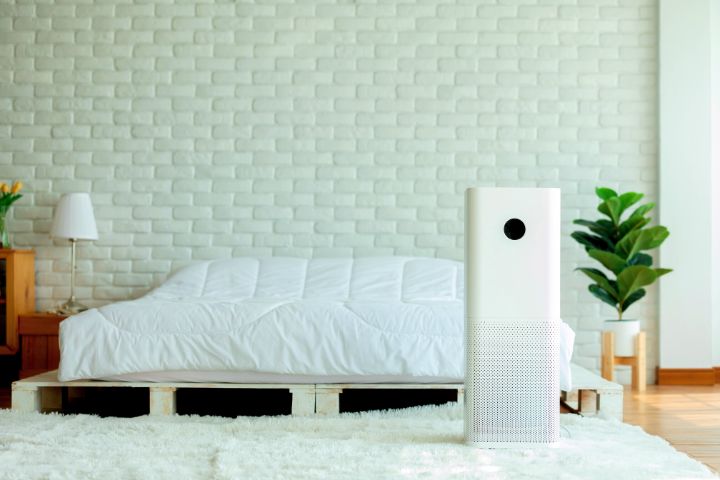
An air purifier can be a great addition to your arsenal of air cleaning tools. Air purifiers can help to remove allergens, mould spores, viruses, dust and smoke from the air in your bedroom where you spend a significant amount of time.
When choosing an air purifier for your bedroom, keep in mind the size of the room, the noise level, the type of filter it uses, its CADR and its certifications. HEPA filters are typically the most effective at removing pollutants from the air, so if you can find an air purifier with a HEPA filter, it will be worth the investment. Gas-phase filters remove some gases and odors so choosing a purifier that contains one of these is also a smart move. The Bluair Blue Pure 211+ Air Purifier, the NuWave OxyPure Smart Air Purifier, and the Honeywell True HEPA Allergen Remover Air Purifier are all great air purifiers for the bedroom and will lead to a goodnight’s sleep.

